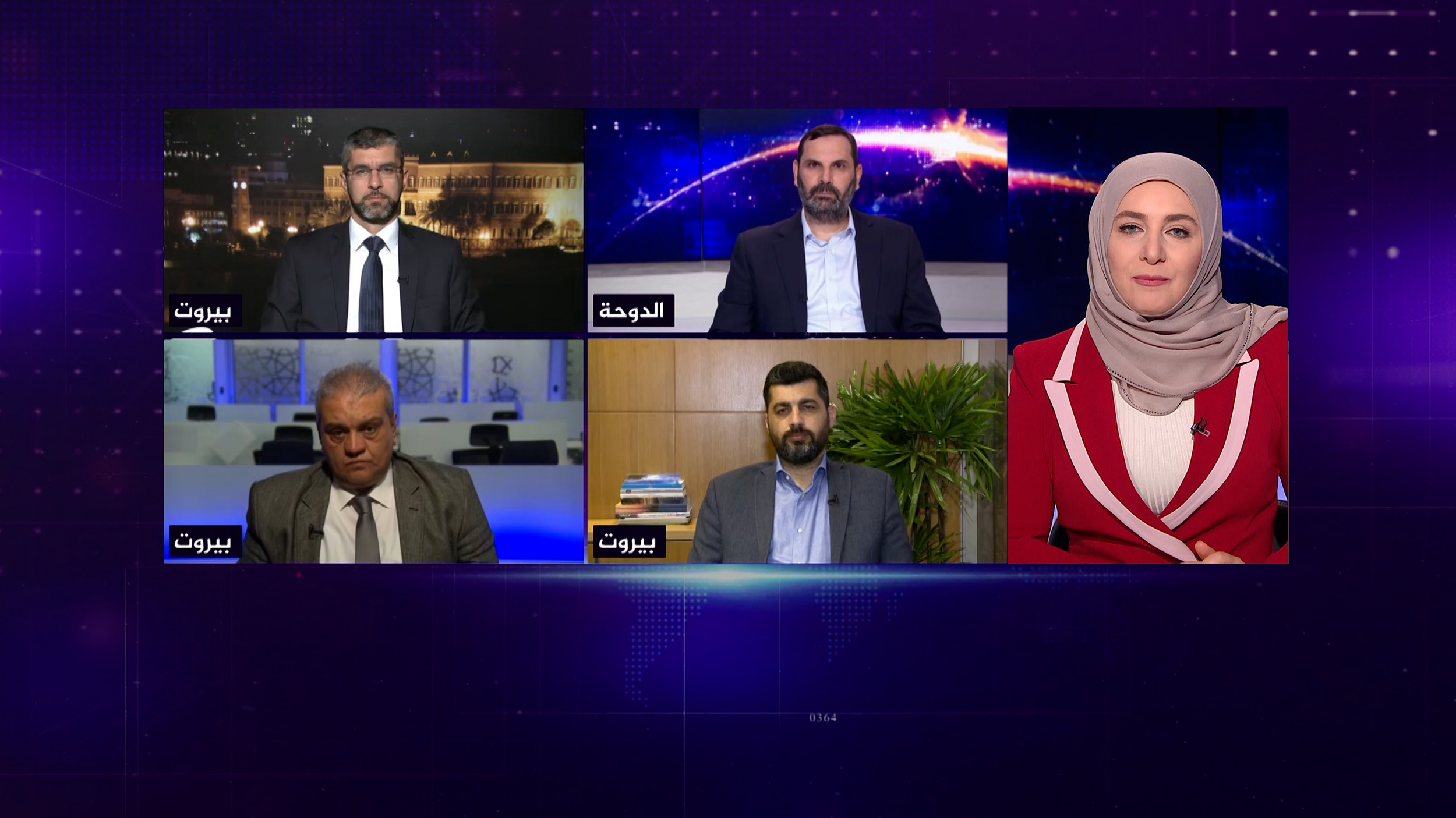
Al Jazeera Centre for Studies and Al Jazeera Mubasher held a webinar on Tuesday, 27 April 2021, to explore the reasons for and implications of the political and economic crisis Lebanon is facing and contemplate means of overcoming it.
The webinar highlighted that the reasons behind the crisis are not new but date back to the end of the Civil War in 1990 and include the country’s inability to establish an independent political regime that is not in need of foreign powers to arbitrate every dispute that emerges between political forces and the failure to establish a productive non-rentier economy without corruption and monopolies.
Participants in the webinar presented a number of visions that they believe could overcome Lebanon’s current crisis. Some of these are related to constitutional amendments while others pertain to dealing with the situation directly, rapidly forming a government and establishing a social safety network that absorbs the implications of the current economic crisis affecting vast sectors of the Lebanese society.
The webinar was held under the title, The Political Crisis in Lebanon and the Implications of Economic Collapse,” with the participation of Hosam Matar, political researcher and university lecturer; Michel Abou Najem, research coordinator at the Futuristic Studies Institute; George Bakasini, writer and journalist; and Chafic Choucair, researcher at Al Jazeera Centre for Studies.
After they presented the historical backgrounds of the political and economic crisis Lebanon is witnessing and discussing the reasons behind its exacerbation, as perceived by different parties including Hezbollah, the Future Movement and the Free Patriotic Movement, the speakers touched on how Lebanon could overcome this deep-rooted crisis. In this light, there were various ideas and visions:
A new version of the Taif Agreement
AJCS researcher Chafic Choucair maintained that the solution starts with addressing the issues that had appeared during the execution of the Taif Agreement signed in 1989, and that the country needs an updated version of the agreement with a new spirit that is invested in accord rather than divisions and victories. He also maintained that it would be beneficial, if details are discussed, to seriously consider establishing a senate.
Choucair also suggested that there be a “new social nationalism” in Lebanon whose formation is dependent on the social segments present in the current political movement in which the people of the north and south came together and raised the same demands for reform. This, he said, would save the country from the current political imbalance and address the growing poverty that has come to affect the population indiscriminately.
Bridging gaps in the political system
On his part, Michel Abou Najem, research coordinator at the Futuristic Studies Institute, held that the opportunity for reform is still available despite “the collapse that occurred” – if the Lebanese and all of the political forces that represent them learn from past lessons and bad political and economic experiences and start to rebuild.
Regarding the reconsideration of the current Lebanese political structure, Abou Najem said, “the proposed demands for constitutional amendments must be taken into consideration provided that this is done through ‘dialogue and consensus’ and that the political regime is able to operate effectively while preserving the current representative reality without the need for an external arbitrator every time a dispute occurs between its components.”
Furthermore, Abou Najem indicated that there are amendments that must be included in the Lebanese political system that bridge the gaps that hinder the formation of government, the selection of a president and the work of the parliament, and that these are necessary in order to seriously work towards state-building.
Expanding the circle of political participation
Hosam Matar, political researcher and university lecturer, emphasised the need for a social safety network that absorbs the social and economic implications of the current crisis, protects the segments of society that are most affected by it, and enables them to adjust to and overcome these implications in upcoming years.
On the calls for the change of certain terms of the Taif Agreement, he said: “Lebanon needs to go back and execute a number of terms [in the agreement] that should have been executed between 1991 and 1992…It is time for these terms to be put on the table for discussion and approval.”
Matar asserted that the Lebanese can achieve constitutional amendments “without creating imbalance or alarming certain parties and social components as these amendments can in fact help guide the current political system.”
He concluded his vision of Lebanon overcoming its current crisis by explaining, “We have to expand the social base of the current political system through a new electoral law that allows new forces and smaller parties to join the parliament and undertake reforms from within state institutions to bring about the desired change.
Moving away from populism and the culture of hegemony
Last but not least, George Bakasini, writer and journalist, argued that the beginning of the solution to the current Lebanese crisis is to quickly form a government “in accordance with the French initiative that defined the characteristics of the next government as per Lebanese interests.”
Regarding calls for constitutional amendments, Bakasini said that “the problem is not the articles of the constitution but the political forces that refuse to adhere to and apply them.” He also stressed the importance of Lebanese forces leaving behind what he called “illusions of control,” “the domination of others" and “the culture of populism that favours slogans over programmes and numbers that actually lead to solutions.”